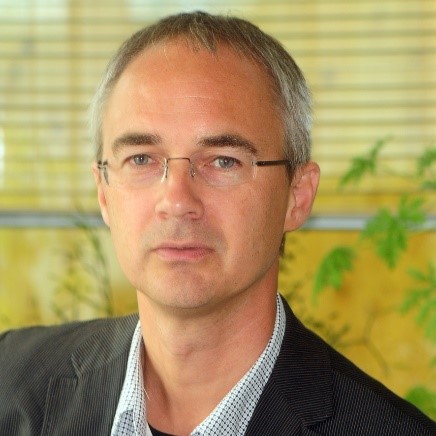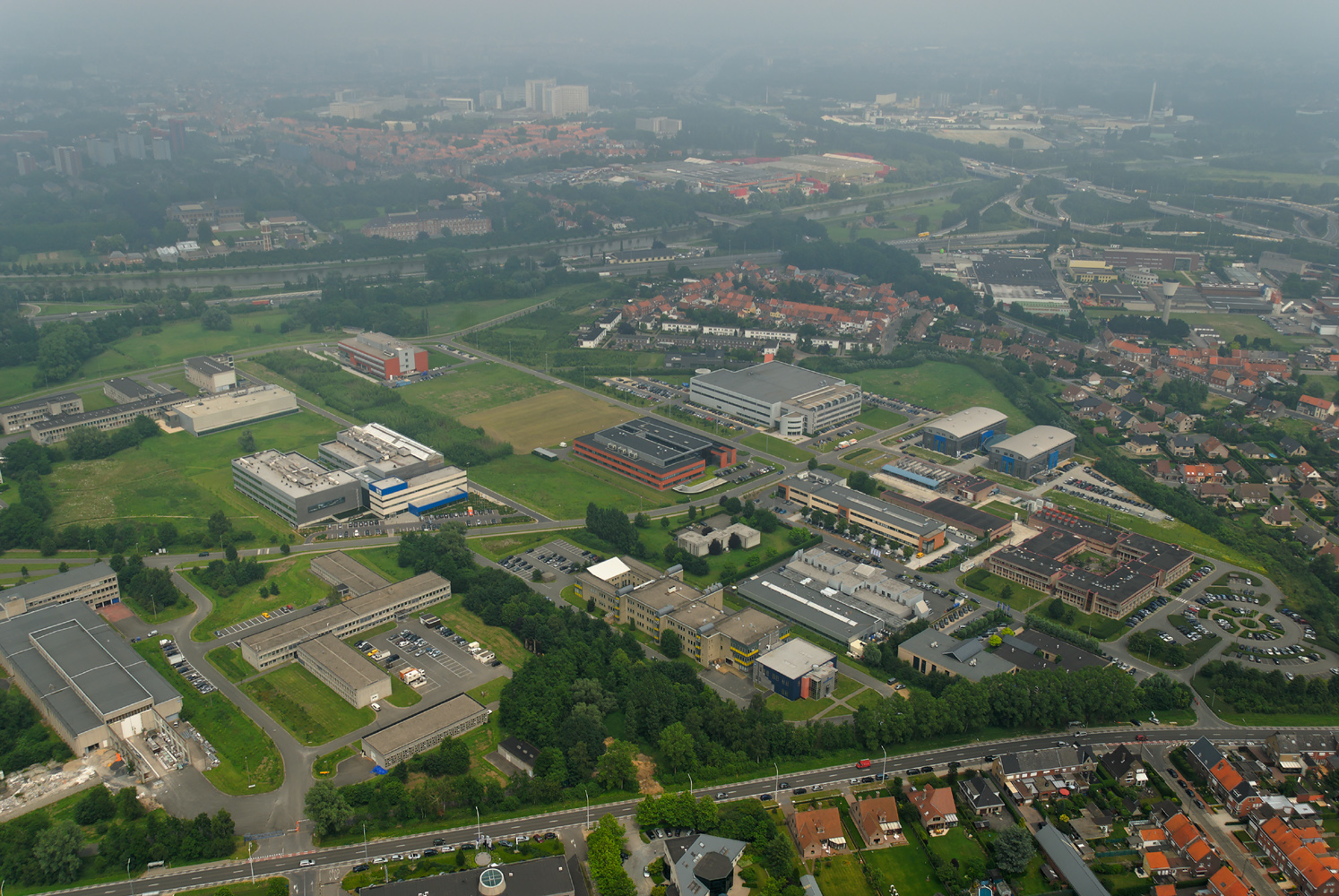The center is built on the foundations of the Laboratory of General Genetics, pioneered by Jeff Schell and Marc Van Montagu.
The research in the early days was focused on microbial genetics: the study of restriction and modification in Escherichia coli, and the search for the tumor-inducing principle (TIP) in Agrobacterium tumefaciens. The laboratory achieved its first international breakthrough in the mid 70s with the discovery that the TIP resided on an extrachromosomal element: the Ti plasmid. Subsequently, the close collaboration between the teams of Jeff Schell and Marc Van Montagu created the fertile environment for combining genetic and molecular approaches to unravel the molecular processes involved in the transformation of plant cells by Agrobacterium. These research efforts culminated in the early 80s with the demonstration that the Agrobacterium-mediated transformation process could be developed into a system that allowed genetical engineering of plants.
Plant engineering became the driving force for the rapid growth of the laboratory. Under the inspiring guidance of Marc Van Montagu, the research group rapidly gained a worldwide reputation as a center of excellence in the field of plant biology. The research interests of the group continuously expanded, covering many different areas, such as plant-microbe interactions, transgene technology, biotic and abiotic stress, cell division control, hormone signaling, metabolic pathways and tree biotechnology, to name just a few.
In 1995, the laboratory was integrated into the newly created VIB, and renamed Department of Plant Genetics. The generous funding provided by the VIB allowed the group to expand. In 1999, Marc Van Montagu retired and Marc Zabeau was appointed head of the department. This was a time for change and refocus. The newly emerging field of genomics was rapidly becoming tangible in plant sciences with the completion of the sequencing of the Arabidopsis genome. The emphasis on plant engineering has now been replaced by a focus on systems approaches to study the basic biological processes in plants, where plants represent an "interesting and important biological system that contrasts animal life". Hence the change in name: Plant Systems Biology.
In 2002, Dirk Inzé became Scientific Director and continued to develop the center as a center of excellence for systems biology of plant growth and development. Following his retirement in late 2023, Yves Van de Peer now leads the Center for Plant Systems Biology. Addressing major challenges such as climate change, biodiversity preservation, and feeding a growing population, over 350 individuals are dedicated to pioneering research in plant biology to tackle some of the most pressing issues of our time.

Science Director
Yves Van de Peer is Full Professor at Ghent University and Science Director of the VIB, Center for Plant Systems Biology (Ghent, Belgium). He obtained his PhD in 1996 at the University of Antwerp, Belgium. After a postdoctoral fellowship with Axel Meyer at the University of Konstanz, Germany, he was hired at Ghent University (BE) as Group Leader of VIB (Department of Plant Systems Biology) in 2000 and as an Associate Professor at Ghent University in 2001 and promoted to Full Professor in 2008. Yves Van de Peer’s research group is considered a genome analysis powerhouse specialized in the study of the structure and evolution of (plant) genomes. Because of their unique expertise and experience in gene prediction, genome annotation, and genome analysis, his research group has been, and still is, involved in many international genome projects.
Yves Van de Peer is particularly interested in the study of gene and genome duplications as well as in the evolution of novel gene functions after duplication. Yves Van de Peer published more than 550 papers, many of which in high-profile journals such as Nature, Nature Genetics, Nature Reviews Genetics, Science, PNAS, Genome Research, and The Plant Cell. Yves Van de Peer has an H-index > 135 and his work has been cited more than 90,000 times (google scholar). For many consecutive years, Yves Van de Peer has been a Highly Cited Researcher. In 2013, Yves Van de Peer received an ERC Advanced Grant entitled “DOUBLE-UP: The evolutionary significance of genome duplications for natural and artificial organism populations”, and in 2018 another one entitled “DOUBLE-TROUBLE: Replaying the ‘genome duplication’ tape of life: the adaptive potential of polyploidy in a stressful or changing environment”. Yves Van de Peer has been Organizer and Chair of the bi-annual international Current Opinion Conference on Plant Genome Evolution, held in 2011, 2013, 2015, 2017, and 2019. In 2019, Yves Van de Peer also organized the triannual International Conference on Polyploidy, Ghent, Belgium. Yves Van de Peer is a member of the Royal Flemish Academy of Belgium for Science and the Arts (KVAB; since 2012) and serves on the Editorial Boards of five international journals (The Plant Journal, PeerJ, Genome Biology and Evolution, Current Plant Biology, Frontiers in Genetics). Yves Van de Peer is also part-time professor at the Department of Biochemistry, Genetics and Microbiology, at the University of Pretoria, South Africa, and at the College of Horticulture at Nanjing Agricultural University, China.
Agro-Biotech Valley
The Center for Plant Systems Biology, and VIB as a whole, have a long-standing tradition of converting basic science into successful industrial entities: Plant Genetic Systems (now BASF Agricultural Solutions Belgium NV, previously Bayer Crop Science), CropDesign (now a BASF Plant Science company), Devgen (now Syngenta) and Aphea.Bio.

Today, these companies, together with the center, form the largest European Plant Biotechnology campus (second largest in the world), employing over 800 persons dedicated to plant biotechnology. The bulk of this workforce has been established through the center’s outstanding scientific achievements and its remarkable ability to identify opportunities for building on scientific results for the exploration of commercial benefits. The integration of fundamental research and industrial applications is key to tap into the immense potential plants offer to build a sustainable world. The center has ongoing collaborations with each of these companies on this 'Tech Lane Ghent Science Park – Campus A'.